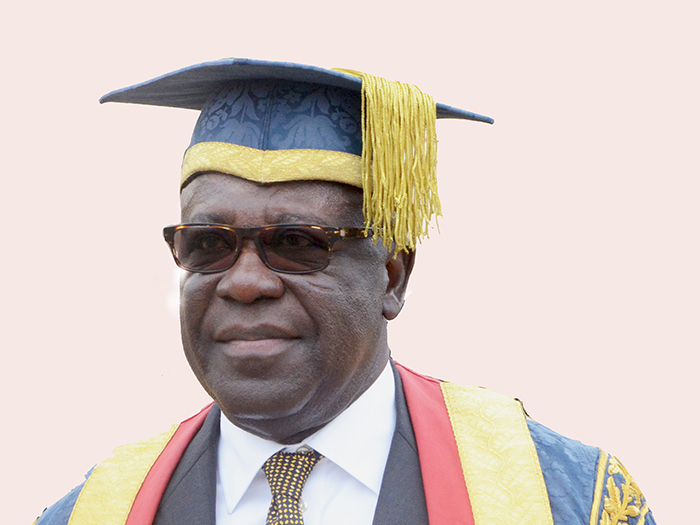The School of Educational Development and Outreach (SEDO) in its quest to engage educational practitioners and researchers on quality education has held its 1st International Conference under the theme, “Promoting Innovative Educational Practices for Sustainable Development”.
Guest Speaker’s Address
Speaking at the opening ceremony of the conference, the Guest Speaker, Emeritus Professor Philip Clarkson, from Australian Catholic University/University of Melbourne, spoke on ‘Globalisation, Language, Values and the way forward to Supporting teachers in Turbulent Times.’
Globalisation in Education
Touching on “Globalisation in Education”, he indicated that the sustainability, environment, quality and support of teachers were crucial concepts. He explained that “The first priority of education for sustainable development is improving access to and quality of basic education,” he said. Another concept he mentioned was formal education, which he said would help to promote the “commodification of education”; and capture what a society valued and wished to pass on to its next generation.
Use of Language in the Classroom
According to Emeritus Prof. Clarkson, the use of language (L1 and L2) in the classroom, in learning might build a cognitive development on the side of the students, however, care needed to be taken in applying the strategies across the context. Emphasising on the relevance of inculcating values in subjects of the study, he admonished curriculum planners to take keen interest to consider their values, because deeper learning included accessing the inherent subject specific values and seeing them for what they were. “Values also include understanding the deeper notions which give a coherent whole in a subject,” he added.
Give Teachers the Needed Recognition
Emeritus Prof. Clarkson cautioned education institutional leaders, curriculum developers and the society, and charged them to give teachers the needed recognition as the front line of the school and that they needed not to be viewed as ‘technicians and trainable’ or ‘to be developed’. “Teachers are professionals who act and think and should critique what they prepare for their teaching, because critiquing the curriculum is a must too. Therefore, as in all professions, they need: ongoing, insightful, pertinent opportunities for professional learning after they graduate; to reflect on their ongoing praxis, and this needs to be accessible to teachers, as their support,” he concluded.
Purpose of the Conference
In her welcome address, the Pro Vice-Chancellor, Prof. Dora Francisca Edu-Buandoh, indicated that since the establishment of the School in August 2016, it had been its dream to organise a conference to bring together lecturers, researchers, educational practitioners and other professionals in the educational sector to share knowledge on issues that would help promote education in Ghana and beyond. She noted that education played significant role in the development of individuals, societies and the nation. Therefore, there was the need to target education as the vehicle to improve the living conditions of the youth, especially in the global south, with poor social and economic conditions.
Innovation in Education
Prof. Edu-Buandoh noted that innovation in education and practices associated with it, have increased, however, the impact of these innovations on the provision of quality education to promote sustainable development, needed to be explored further. “I am informed that this conference seeks to create the platform or engagement among educational practitioners and researchers on seven sub-themes, namely, curriculum and teaching; quality assurance; access, equity and inclusion; assessment in education; development and management of educational practitioners; ICT integration in education; and educational leadership and management,” she noted. She was hopeful that discussions at the conference would produce workable innovative practices that would ultimately help to improve education delivery in Ghana and in other contexts.” She wished the participants fruitful deliberations.
Quality Education Cannot Be Compromised
The Provost, College of Education Studies, Prof. Eric Magnus Wilmot, noted that quality education could not be compromised at all the levels of education thus basic, second cycle and tertiary. “In reality, in our time, what we need is Quality Education, which is at the heart of the SDGs, and to achieve it, we need to inject innovative practices,” he emphasised. He was confident that that the presentations would contribute towards improving the entire academic system to reflect in quality teaching , research and learning in the various educational institutions in order to eradicate hunger, poverty and to achieve gender equality.
Participants for the Conference
The two-day programme brought together representatives from other Universities in Ghana, District Directorates of Education, National Council for Tertiary Education (NCTE), Ghana Education Service(GES), National Teaching Council (NTC), National Inspectorate Board (NIB), National Council for Curriculum Assessment (NCCA), Development Partners, Sponsors and Students.









